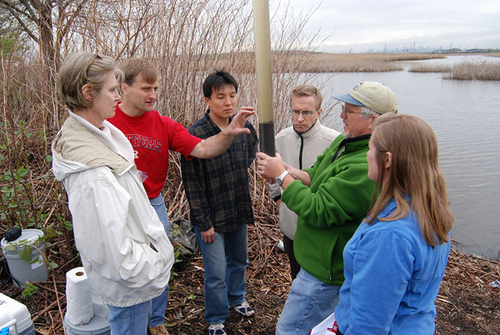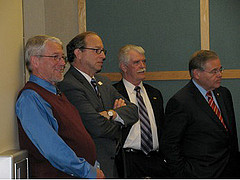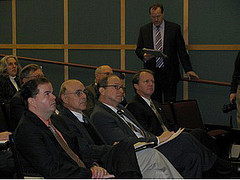This post is part of the Science Tuesday feature series on the USDA blog. Check back each week as we showcase stories and news from the USDA’s rich science and research portfolio.
By Greg Smith, National Program Leader, USDA National Institute of Food and Agriculture
In what is sure to be good news for college students worried about finding a job after graduation in today’s economic climate, employment opportunities for U.S. college graduates with expertise in the food, agricultural, and natural resources and related science sectors are expected to remain strong during the next five years. This news comes from the recently released report, Employment Opportunities for College Graduates in the U.S. Food, Agricultural, and Natural Resources System, the seventh 5-year employment opportunities projections study initiated by USDA’s National Institute of Food and Agriculture (NIFA).
My colleagues and I at NIFA worked with Purdue University to produce this report, which covers the years 2010 through 2015. We are expecting to see a greater need for professionals in agriculture and food systems, renewable energy and the environment as there will be an estimated 54,000 job openings annually. In fact, compared to 2005-2010, the workforce will demand 5 percent more graduates in 2010-2015. More than enough graduates will likely be available during the next couple of years in some occupations, but we foresee a shortfall of new graduates with preparation in priority business and science specialties in the latter half of the period.
Four major factors will shape the market for graduates in the next five years: macroeconomic conditions and retirements; consumer preferences for nutritious and safe foods; food, energy and environment public policy choices; and global market shifts in population, income, food and energy.
In the report, we identified the strengths graduates will need to compete for jobs in the areas of management and business; science and engineering; agricultural and forestry production; and education, communication and government services. The strongest demand is anticipated for graduates with college degrees and related work experience in business and management.
The projected growth in these occupations will be welcomed as the United States addresses the growing challenges related to food safety and security, climate change, and sustainable energy. We will need the talents, skills and knowledge of these professionals to help us solve these pressing issues and secure our future.

College graduates, such as these Rutgers University soil science students, can expect to see an increase in the number of job opportunities available in the next five years.





